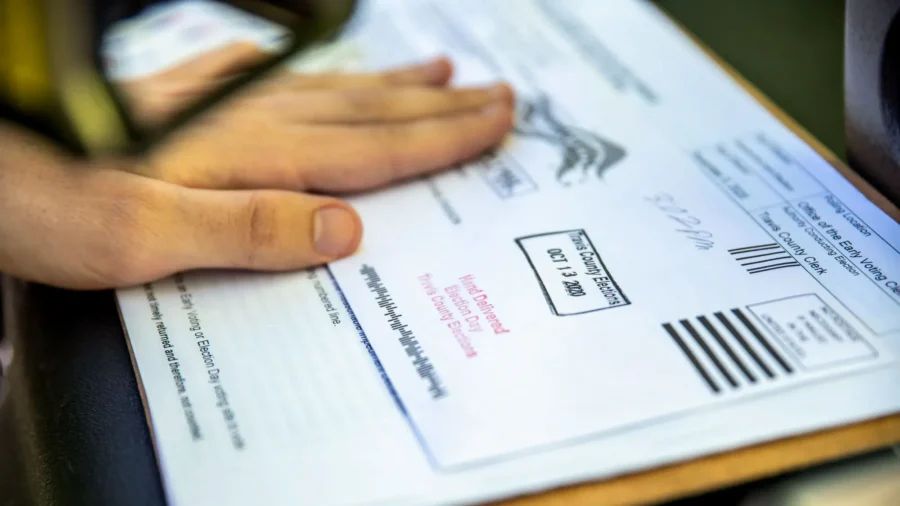The U.S. Court of Appeals for the Fifth Circuit released an opinion on Oct. 25 stating that federal law requires mail-in ballots be counted no later than election day.
In doing so, it ruled against a Mississippi law allowing ballots to be counted if they arrived no more than five days after the election and if they were postmarked on or before the date of the election.
The opinion, which came less than two weeks before the 2024 elections, redirected the case back to the lower court while refraining from issuing an injunction that would halt Mississippi’s law.
The policy was adopted during the COVID-19 pandemic, but the state kept it after the pandemic ended.
“Because Mississippi’s statute allows ballot receipt up to five days after the federal election day, it is preempted by federal law,” Judge Andrew Oldham, an appointee of former President Donald Trump, wrote in his opinion for the court.
RNC Chairman Michael Whatley called the decision on the social media platform X a “seismic win for fair, accurate, secure, and transparent elections.”
Justifying the decision to throw the decision back to the lower court, rather than block Mississippi’s law, Oldham referenced a Supreme Court precedent that cautions against last-minute changes to election procedures.
“Today’s decision says nothing about remedies,” he said. “We decline to grant plaintiffs’ initial request for a permanent injunction. … Instead, we remand to the district court for further proceedings to fashion appropriate relief, giving due consideration to ‘the value of preserving the status quo in a voting case on the eve of an election.'”
He was quoting another fifth circuit case but also referenced the Supreme Court’s 2006 decision in Purcell v. Gonzalez.
Mississippi Secretary of State Michael Watson had told the Fifth Circuit that an election was voters’ “conclusive choice of an officeholder,” which took place on election day.
“That is so even if election officials do not receive those ballots until after election day,” his brief to the court read. “An election does not itself require ballot receipt.”
Oldham and two other Trump appointees, Judge James Ho and Judge Kyle Duncan, heard oral arguments over the issue in September. The Republican National Committee (RNC) had appealed the decision of a lower court that ruled in favor of Mississippi.
Oldham reasoned that the Constitution granted Congress authority over elections through two provisions, including one that allows Congress to alter the timing of federal elections hosted by states.
Oldham drew a distinction between the timing of ballot counting and ballot casting.
“Even if the ballots have not been counted, the result is fixed when all of the ballots are received and the proverbial ballot box is closed,” he wrote. “The selections are done and final.”
Mississippi’s “problem,” he said, “is that it thinks a ballot can be ‘cast’ before it is received.” He added that “[a] voter’s selection of a candidate differs from the public’s election of the candidate.”
Mississippi is one of several states with laws allowing mailed ballots to be counted if they are postmarked by Election Day, according to the National Conference of State Legislatures. The list includes swing states such as Nevada and states such as Colorado, Oregon, and Utah that rely heavily on mail voting.
In July, a federal judge dismissed a similar lawsuit in Nevada. The Republican National Committee is asking the 9th Circuit Court of Appeals to revive that case.
The RNC previously told The Epoch Times that it was involved in more than 130 lawsuits across 26 states. States have also pursued their own efforts while coming up against challenges from outside parties, including the Justice Department (DOJ).
Oldham’s opinion came on the same day that a federal judge granted the DOJ’s request to halt Virginia’s program for purging non-citizens from voter rolls.
Federal Judge Patricia Giles held that the program was within a prohibited 90-day timeframe set up by the National Voter Registration Act, a federal law passed by Congress in 1993. Another federal judge in Alabama similarly blocked the state’s program to purge non-citizens from its rolls.
The Associated Press contributed to this report.
From The Epoch Times

